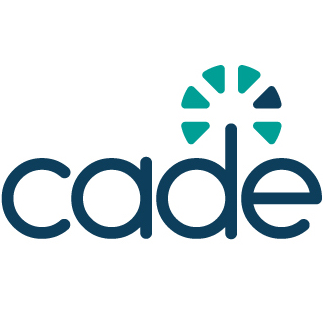Civil Society Alliances for Digital Empowerment
| Organization | |
|---|---|

| |
| Focus | Reseach |
| Websites | |
Civil Society Alliances for Digital Empowerment (CADE) [1] is a global consortium of civil society organizations working collaboratively to foster inclusive, evidence-based Internet governance (IG) policymaking. CADE is co-funded by the European Union and is coordinated by DiploFoundation [2] . It brings together diverse expertise and regional outreach through its member organizations, each contributing specific strengths in digital policy, rights, advocacy, and capacity building.
CADE was launched in January 2024 as a four-year collaborative project involving ten organisations from around the world [3]. It was established to tackle the structural challenges faced by CSOs in engaging with Internet governance processes. These challenges include fragmentation in their approaches, limited technical capacity to navigate complex digital policy environments, and significant underrepresentation in international forums such as ICANN[4], ITU[5], the IETF[6], and the UN IGF[7].
To address these issues, CADE focuses on three strategic objectives: building the advocacy skills and knowledge of CSOs; facilitating their active involvement in global, regional, and national digital governance spaces; and fostering stronger partnerships between organisations from the Global North and South. The initiative seeks to include a wide range of civil society actors—from those new to Internet governance, to those working on human rights, gender justice, and community-led initiatives. Through capacity development, knowledge exchange, and inclusive dialogue, CADE strengthens the role of CSOs in shaping an equitable, rights-respecting digital future.
Member Organizations
- DiploFoundation[8]: Specialises in comprehensive capacity development and has been active in global Internet governance processes for over 20 years.
- European Center for Non-for-profit Law (ECNL)[9]: Advocates for human rights and freedoms in technological development.
- Forum International des Plateformes nationales d’ONG (Forus)[10]: A global network of over 22,000 CSOs supporting effective civil society participation in decision-making.
- Collaboration on International ICT Policy for East and Southern Africa (CIPESA)[11]: Promotes inclusive ICT policy for improved governance and human rights in Africa.
- Kenya ICT Action Network (KICTANet)[12]: Works for open, inclusive, and rights-based ICT policy frameworks.
- Sarvodaya-Fusion[13]: Empowers rural and semi-urban communities in the Asia-Pacific region through digital literacy and access.
- Social Media Exchange (SMEX)[14]: Defends digital rights and online freedoms in the Middle East and North Africa (MENA) region.
- Pacific Islands Chapter of the Internet Society (PICISOC)[15]: Supports Internet development and digital inclusion in the Pacific Islands.
- Fundación Karisma[16]: A Colombian organization ensuring the protection of fundamental human rights in the digital environment.
Goals and Activities
CADE’s mission is to strengthen the role of civil society in digital governance and to ensure that digital policy frameworks respect human rights, promote access and inclusion, and reflect evidence-based approaches. Its activities include policy research, capacity development, stakeholder engagement, and the promotion of regional dialogues on key digital issues.
Relevance to ICANN
While CADE is not directly affiliated with ICANN, its work on multistakeholder Internet governance, capacity development, and civil society empowerment aligns with many of ICANN’s ecosystem values. CADE members often engage with ICANN through its civil society spaces such as At-Large [17] and other Internet governance forums.
References
- ↑ https://cadeproject.org/who-are-we/
- ↑ https://www.diplomacy.edu/
- ↑ https://cadeproject.org/cade-mission/
- ↑ https://www.icann.org/
- ↑ https://www.itu.int/es/Pages/default.aspx
- ↑ https://www.ietf.org/about/introduction/
- ↑ https://intgovforum.org/en
- ↑ https://www.diplomacy.edu/
- ↑ https://ecnl.org/about-us
- ↑ https://www.forus-international.org/fr/
- ↑ https://cipesa.org/
- ↑ https://www.kictanet.or.ke/
- ↑ https://www.sarvodayafusion.org/
- ↑ https://smex.org/
- ↑ https://picisoc.org/
- ↑ https://web.karisma.org.co/
- ↑ https://atlarge.icann.org/
ICANNWiki resources: Special Pages | Content Guide | Documentation | Development || Maintenance: Articles needing attention | Candidates for deletion || Projects: Internet & Digital Governance Library
